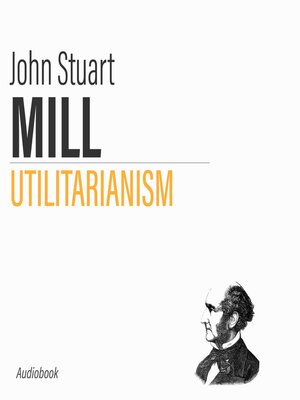
Sign up to save your library
With an OverDrive account, you can save your favorite libraries for at-a-glance information about availability. Find out more about OverDrive accounts.
Find this title in Libby, the library reading app by OverDrive.



Search for a digital library with this title
Title found at these libraries:
| Loading... |
Utilitarianism is a moral theory that was developed by British philosopher John Stuart Mill in the 19th century. According to Mill, the ethical basis for decision-making should be the greatest happiness or pleasure for the greatest number of people. This principle is also known as the "greatest happiness principle."
Mill believed that human happiness was the ultimate goal of morality and that actions should be judged according to their ability to promote happiness. He argued that actions that bring about the greatest amount of happiness for the greatest number of people are morally right, while actions that lead to pain or suffering are morally wrong.
Mill believed that happiness should be measured by the amount of pleasure that people experience, and he distinguished between two types of pleasure: higher pleasures and lower pleasures. Higher pleasures are those that are associated with the intellect, such as the pursuit of knowledge or the appreciation of art, while lower pleasures are those that are associated with the body, such as the satisfaction of hunger or the gratification of sexual desire. According to Mill, higher pleasures are more desirable than lower pleasures because they are more intellectual and have a more lasting impact on a person's happiness.
Mill's utilitarianism has been influential in many areas of philosophy, including ethics, political philosophy, and social theory. His emphasis on the importance of promoting the happiness of the greatest number of people has been used to justify a wide range of policies and practices, including democracy, public health measures, and the redistribution of wealth. However, Mill's theory has also been criticized for its focus on pleasure and its potential to justify actions that are harmful to minorities or individuals.






